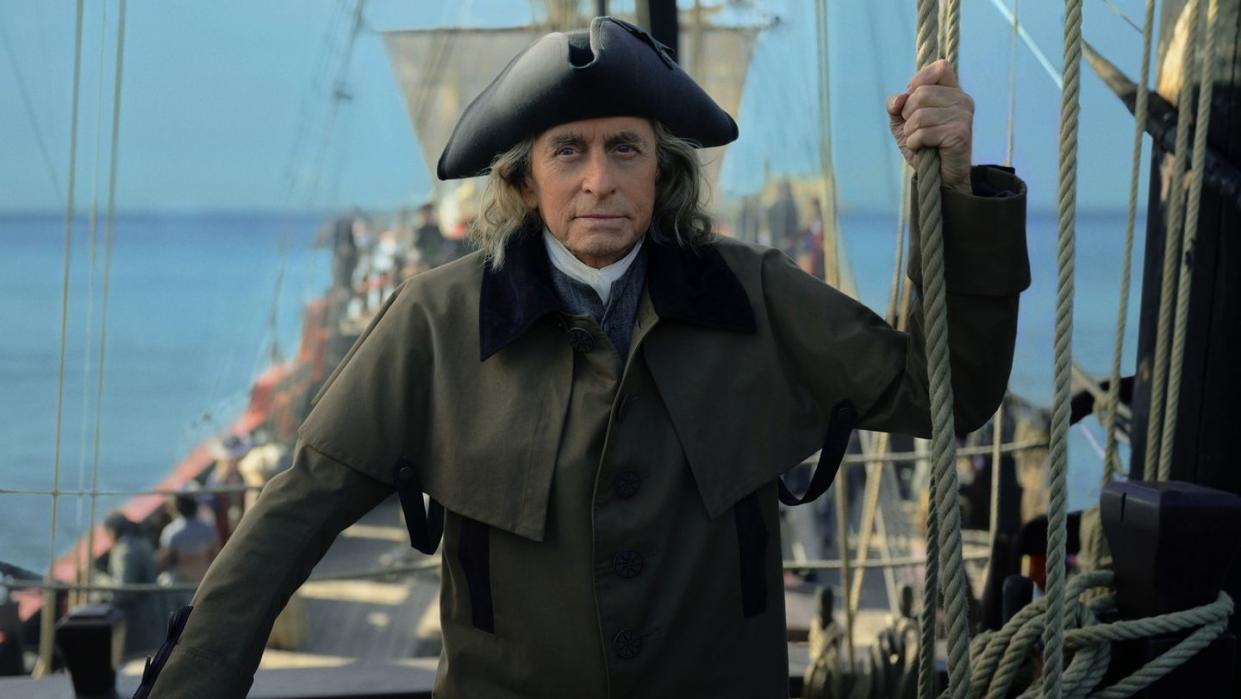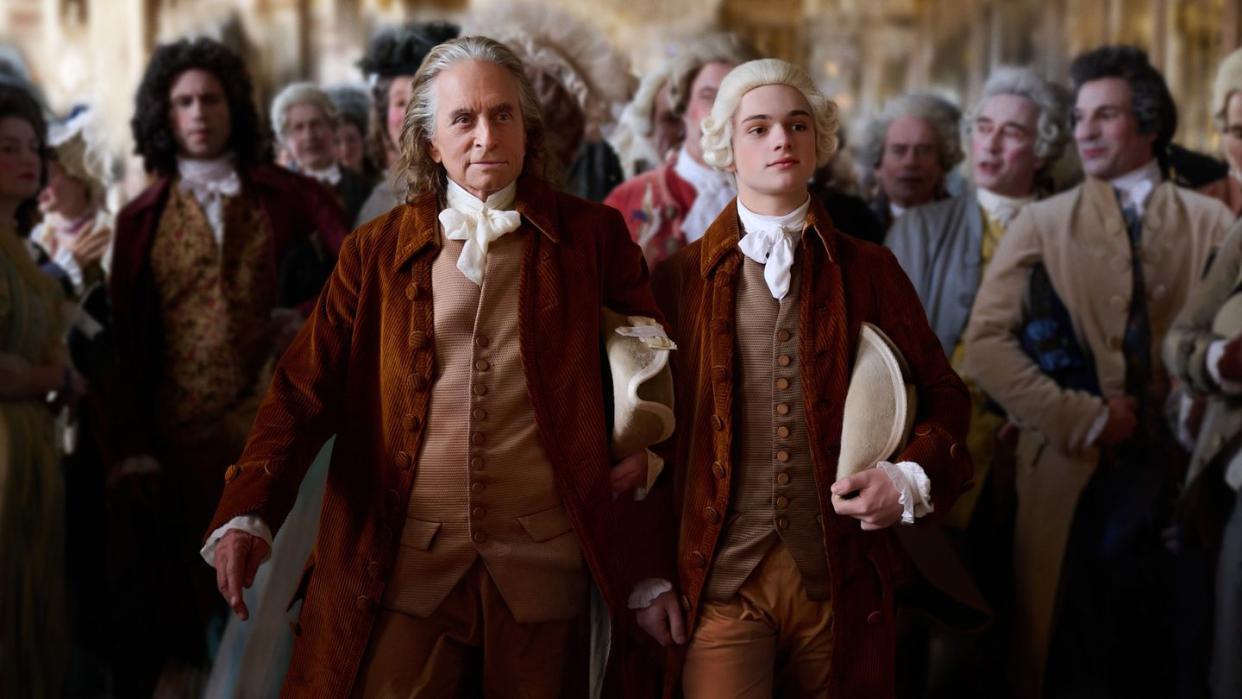The True Story Behind Benjamin Franklin’s French Voyage in 'Franklin'
MICHAEL DOUGLAS IS up to something. The Wall Street and Basic Instinct star has made a hard pivot into prestige historical drama by playing no less a nobleman than Benjamin Franklin in Franklin, the new Apple TV+ limited series. The eight-episode project sees Douglas’s Founding Father journeying to France in 1776 to convince France to support the war for American independence. It’s a vital story of one of the most important figures in United States history, but one that most probably don’t know much (if anything) about.
The show, which counts Douglas as not only its titular star but also a producer, comes as the 79-year-old Academy Award-winner is in a phase of trying new things in his career (other recent projects include Netflix’s sitcom The Kominsky Method and several appearances in the Marvel Cinematic Universe as the genius inventor/scientist Hank Pym). But it also gives him a chance to draw some parallels between the time of America’s infancy, and our present day landscape.
“I got a brand new appreciation for democracy and realizing how close we came to losing it,” he told Men’s Health in an interview. “It made me realize that without the help of France at that point, we would not have an America. It wouldn't be there.”
The already-famous Franklin made it his mission to secure French money, supplies, ships, soldiers in the Revolutionary War. But in case your memory of high school American (or European!) history is rough these days, or if you want to know the nitty gritty of Franklin’s saga across the pond for any other reason, here’s an explainer on the real saga behind Franklin.
Why did Benjamin Franklin go to France in 1776, exactly?

Let’s back up slightly: Franklin had already earned quite a few accolades by October 1776, when he set sail for France. “The most distinguished scientific and literary American of the colonial era,” per the U.S. Department of State’s Office of the Historian, had a storied career as a printer and publisher, author, inventor, and scientist, and diplomat. No he didn’t quite invent electricity, but he did a lot to help us understand it. And he did help draft the Declaration of Independence, approved by the Continental Congress on July 4, 1776.
But more to the point, by the end of that geopolitics-shifting year, Franklin became “the first American diplomat.” (He is also, in the words of the National Constitution Center, “America’s first rock star,” though that title is almost definitely figurative.) From 1776 to 1778, he served on a commission tasked with gaining France’s aid. French aristocrats and intellectuals went starry-eyed at his arrival (he was the definition of a big deal); chic women even adopted the "coiffure a la Franklin," i.e., his sartorial choice to wear a fur cap instead of a wig.
And so what did he achieve?
Franklin became central in the successful effort to align France with the nascent U.S., but it was slow going. Though France had been secretly propping up the Patriot cause since the war broke out, its leaders did not feel like they could officially forge an allegiance until an American victory was assured. He finally nabbed their recognition of the U.S. in the Revolutionary War on December 17, 1777, after the crucial American victory over the British at the Battle of Saratoga in October of that year swayed the French.
Through diplomatic skill, and probably being an OG influencer, he also sold France on an alliance with the 13 states only months later, with the countries jointly signing the Treaty of Amity and Commerce and the Treaty of Alliance on February 6, 1778. The boost from French supplies and more turned out, in history’s rearview mirror, to be pivotal to the American victory for independence. (And hey, they gifted us the Statue of Liberty in 1885, which is still pretty cool.)
But how does Franklin the show shake out?

Well, according to Rotten Tomatoes, it’s… decent, receiving a 68 percent critics score and a 67 percent audience score as of this writing. Critics mostly agree that Douglas is charismatic (for the right and wrong reasons) and that the historical exposition can get stuffy. It’s also perhaps to Douglas’s benefit that he’s an American playing an American, and not Joaquin Phoenix doing Napoleon by way of Brooklyn. And it might be worth staying tuned in for magnetic young actor Noah Jupe (A Quiet Place, Honey Boy), playing William Temple Franklin, teenage secretary to his grandfather. If Jupe can’t figure out this Franco-American pact, no one can.
You Might Also Like
